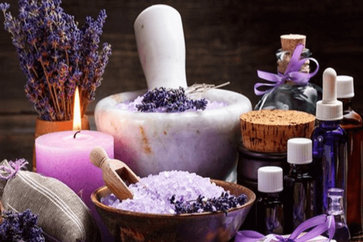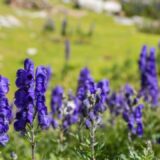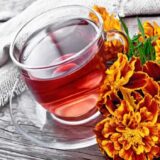How To Boost Immune System Naturally At Home?
As the seasons change, it is common to experience colds, viral illnesses, and joint discomfort. To enhance our protection against these conditions, it is important to follow certain guidelines that can strengthen our immune system.
One of the key aspects to focus on during this season is increasing our intake of vitamin C. Therefore, it is recommended to consume fruits and foods that are particularly rich in this vitamin. While getting vaccinated against potential flu strains is a common approach, natural medicine emphasizes the prevention of these illnesses by naturally stimulating our immune system and improving our overall health.
Thankfully, our immune system serves as an internal guardian, silently safeguarding our well-being by defending against viruses, bacteria, parasites, and even tumors. Currently, it plays a crucial role in protecting us against the SARS-CoV-2 virus specifically.
However, there are circumstances where the immune system may struggle against certain pathogens, such as the coronavirus that is currently affecting us. Weakness in the immune system can arise from various factors, including certain diseases or the natural aging process.
Moreover, the immune system’s effectiveness can be compromised when individuals lead unhealthy lifestyles and neglect proper self-care. It is crucial to address these unhealthy habits and make necessary corrections if one desires to possess a strong and efficient immune system.
How Naturally To Boost Immune System?
1. Detoxify our body
Engaging in organic purification during the autumn season can enhance our body’s resilience against various processes.
Many present-day ailments stem from an accumulation of toxins that overwhelm our elimination organs, leading to cellular inflammation that hampers and compromises the functioning of our immune system.
A beneficial approach during autumn is to adopt a cleansing diet centered around grapes, as they support detoxification processes in the liver.
One can opt for a week-long regimen where only grapes are consumed, or alternatively, start with at least one or three days. It is advisable to choose organic grapes, particularly red grapes, and consume the skin and seeds. Additionally, the purifying apple diet is highly recommended as well.
2. Improve intestinal health
The good state of our intestine, especially our intestinal flora, ensures a good functioning of our immune system since most of the lymphocytes are housed in the intestine.
A predominantly fermentative intestinal flora ensures good intestinal function and therefore a good functioning of the immune system.
- A diet rich in fiber: vegetables, vegetables, and fruits, as well as legumes and preferably whole grains, low or absent in gluten, promote regular intestinal function and contribute to the cleansing of the intestine. They also provide prebiotic fibers as a food source to maintain our healthy intestinal flora.
- Beware of antibiotics. They are widely used in catarrhal and flu processes, but in the latter, they should not be used since antibiotics are only effective against bacteria and not against viruses that cause influenza.
- Medicines such as antibiotics will destroy our intestinal flora, so it will be important to protect yourself during treatment by taking probiotics and at the end of said treatment.
- Including fermented foods in our diet such as water kefir, miso paste, fermented cabbage, and other fermented vegetables, also contribute to improving our intestinal flora and therefore our defensive system.
3. Increase the consumption of vitamin C
Numerous studies have highlighted the significance of vitamin C in supporting a robust immune system. This essential vitamin is primarily found in fresh fruits and vegetables, underscoring the importance of including a substantial portion of these foods in our daily diet.
Consuming a greater amount of raw and unheated foods, such as juices or salads, is vital as the heating process can cause the vitamin C content to diminish.
While fruits are commonly associated with being high in vitamin C, it is actually green vegetables that are more abundant in this nutrient.
For instance, broccoli contains approximately 150 mg of vitamin C per 100 grams, while parsley boasts 197 mg, and peppers provide 120 mg of vitamin C.
In comparison, oranges have an average of 60 mg of vitamin C per 100 grams. Therefore, it is beneficial to prioritize the consumption of green vegetables to maximize vitamin C intake.
- It is important to consume these greens and vegetables raw. We can chop a little of them and add them to the salad or to smoothies or smoothies, to take full advantage of vitamin C, as well as other nutrients that are lost with cooking.
- Incorporate berries and wild fruits into your diet: rose hips, hawthorn, sloes, currants, blueberries, and strawberry trees. They are very beneficial because they are true capsules of energy, vitality, and nutrients that can help us improve our health in autumn and prevent diseases typical of the cold season. We can also find preparations based on these wild fruits, mainly based on rose hip or acerola.
4. Use Seawater
Sea water is a rich source of trace elements that are essential for our body, making it a beneficial way to replenish these nutrients. As our conventional farming practices often involve the use of chemical fertilizers and pesticides, our diets are increasingly deficient in micronutrients. Moreover, an overly acidic diet can lead to demineralization of the body.
Filtered and suitable-for-consumption seawater is now available for purchase in various food stores, supermarkets, and online platforms like Amazon.
The recommended method of consumption is to add two fingers’ worth of seawater to a glass of filtered mineral water or tap water. Consuming this mixture on an empty stomach helps alkalize and remineralize our body.
Additionally, seawater contains trace elements such as copper, gold, and silver, which have been traditionally utilized in oligotherapy for treating infectious diseases.
Seawater can also be used as an alternative to sea salt in cooking. It can be incorporated into recipes for rice, broths, soups, or sauces, adding its unique mineral content and flavor to the dishes.
5. Seaweed is good for the immune system
Integrating seaweed into our dietary habits presents a valuable approach to enhance vitality and strengthen our defenses. Seaweed encompasses a comprehensive array of trace elements and minerals found in the sea.
Additionally, they offer other noteworthy nutrients, including soluble fibers that promote intestinal health, omega-3 fatty acids with anti-inflammatory properties, and antioxidant pigments that provide significant protection against free radicals.
Moreover, seaweed exhibits chelating properties, particularly those with higher chlorophyll content like chlorella and spirulina, effectively aiding in the elimination of heavy metals and toxic particles.
By incorporating seaweed into our regular meals, such as salads, stews, or soups, in an approximate daily proportion of 10 grams, we can harness its benefits. Alternatively, powdered forms of seaweed, such as spirulina algae, can be consumed in juices for added convenience and ease.
6. Medicinal Plants to stimulate our immune system
There exists a diverse range of medicinal plants that can aid in bolstering our immune defenses. While Echinacea is widely recognized for its immunomodulatory and protective properties, numerous other plants also offer similar benefits.
Some notable examples include Aloe vera juice, particularly Aloe ferox, which contains high levels of acemannan, Shitake, Maitake, and Reishi mushrooms known for their lentinan content, Horsetail renowned for its organic silicon content, Cat’s Claw, Elderberry, Yarrow, Plantago, and Rosemary.
The following are additional herbal options that can support immune function: Echinacea, Eleutherococcus, Horsetail, Cat’s Claw, Shitake Mushroom, Elderberry, Tila, and more. Supplements such as Propolis, Royal Jelly, and vitamin C, including natural sources like Acerola, can also be beneficial in enhancing immune health.
In the realm of oligotherapy, the utilization of trace elements can play a role. Manganese (Mn), Copper (Cu), Silver (Ag), and Gold (Au) are examples of oligotherapy elements that can be considered.
7. Natural antibiotics
Natural alternatives with antibiotic properties are substances derived from nature that can help combat bacterial infections. Here are some examples:
1. Garlic: Garlic has been used for its medicinal properties for centuries. It contains a compound called allicin, which has potent antibacterial properties. Consuming raw garlic or taking garlic supplements may help fight bacterial infections.
2. Honey: Raw honey has antimicrobial properties and can be used topically on wounds or taken orally to help fight bacterial infections. Manuka honey, in particular, is known for its strong antibacterial effects.
3. Tea tree oil: Tea tree oil is derived from the leaves of the tea tree plant and has powerful antimicrobial properties. It can be used topically to treat skin infections, acne, and fungal infections.
4. Eucalyptus oil: Eucalyptus oil has antimicrobial properties and can be used in inhalation therapy to help relieve respiratory infections. It can also be applied topically to treat skin infections.
5. Colloidal silver: Colloidal silver is a liquid suspension of silver particles that has antimicrobial properties. It can be used topically on wounds or taken orally to help fight bacterial infections.
6. Grapefruit seed extract: Grapefruit seed extract contains compounds that have antimicrobial properties. It can be used topically on skin infections or taken orally to support the immune system.
It’s important to note that while these natural alternatives may have antibacterial properties, they should not replace medical treatment for serious infections. It’s always best to consult with a healthcare professional for proper diagnosis and treatment.
How To Boost The Immune System Quickly
Boosting the immune system quickly is a common goal, especially during times when you want to enhance your body’s natural defenses. Here are some tips to help boost your immune system quickly:
1. Eat a balanced diet: Focus on consuming a variety of nutrient-rich foods, including fruits, vegetables, whole grains, lean proteins, and healthy fats. These provide essential vitamins, minerals, and antioxidants that support immune function.
2. Stay hydrated: Drink an adequate amount of water each day to maintain proper hydration. Water helps in the circulation of immune-boosting nutrients and supports overall bodily functions.
3. Get enough sleep: Aim for 7-9 hours of quality sleep each night. Sufficient sleep is vital for immune system functioning and helps in recovery and repair.
4. Manage stress: Chronic stress weakens the immune system. Practice stress-management techniques like deep breathing exercises, meditation, or engaging in activities that you enjoy.
5. Exercise regularly: Engaging in moderate-intensity exercise for at least 30 minutes most days of the week can help boost your immune system. Exercise improves circulation, reduces stress, and enhances overall well-being.
6. Maintain good hygiene: Wash your hands frequently, especially before eating and after being in public places. Avoid close contact with sick individuals to minimize the risk of infections.
7. Limit alcohol intake: Excessive alcohol consumption can weaken the immune system. If you drink, do so in moderation.
8. Quit smoking: Smoking damages the immune system and increases the risk of infections. Quitting smoking can greatly improve your immune function.
9. Consider immune-boosting supplements: Some supplements, such as vitamin C, vitamin D, zinc, and probiotics, may support immune health. Consult with a healthcare professional before starting any new supplements.
10. Stay active and maintain a healthy weight: Engage in regular physical activity and maintain a healthy weight to support overall immune system function.
Note: Remember, while these practices can help support your immune system, they are not a guarantee against illnesses. If you have specific health concerns or suspect an underlying condition, it’s essential to consult with a healthcare professional.
References
- Vitamin C, Fact Sheet for Health Professionals(1)
- Childs CE, Calder PC, Miles EA. Diet and immune functionexternal icon. Nutrients. 2019;11(8):1933. Accessed May 13, 2021.(2)
- Christ A, Lauterbach M, Latz E. Western diet and the immune system: an inflammatory connectionexternal icon. Immunity. 2019;51(5):794–811. Accessed May 13, 2021.(3)
- Nieman DC, Wentz LM. The compelling link between physical activity and the body’s defense systemexternal icon. J Sport Health Sci. 2019;8(3):201–217. Accessed May 13, 2021.(4)


























